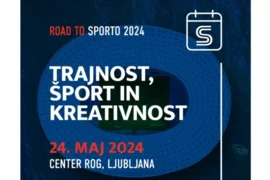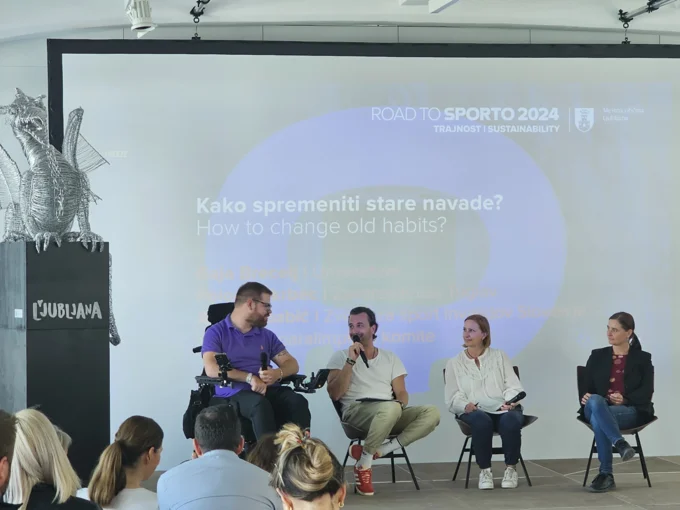EUSA attended the Road to SPORTO2024: sustainability, sport and creativity conference held in Ljubljana on Friday 24th of May, at Center Rog in Ljubljana.
Following the success of the conference on the Esports and Gaming Industry on April 5th, the journey to SPORTO 2024 continued with a second thematic event, this time focusing on sustainability in organizing major sports events. The conference showcased exemplary cases of how sports can help implement and promote sustainable practices. Speakers from various backgrounds and countries provided diverse perspectives on sustainability in sports.

The conference was opened by the speech of Sara Ašanin Gole from Šport Ljubljana, who presented the achievements of the city of Ljubljana in hosting the EHF 2022 European Women's Handball Championship. The EHF Euro 2022 matches held at the Stožice Arena served as an opportunity to test a comprehensive system for the sustainable management of a sporting event thanks to the implementation of carbon footprint reduction measures across the entire logistics chain.
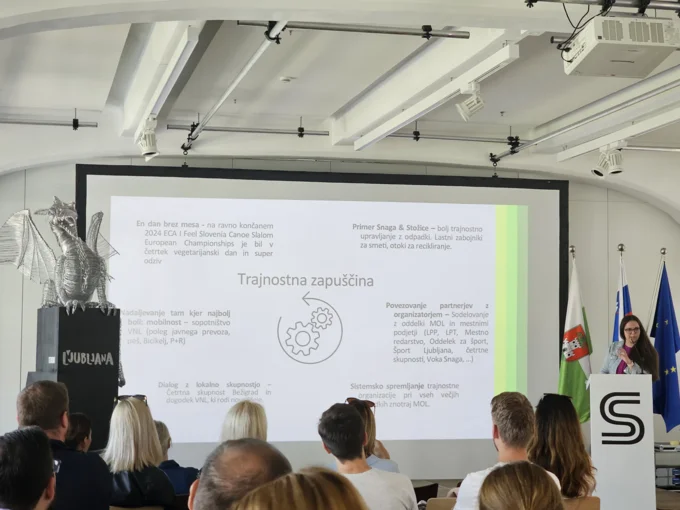
During her presentation, Ms Gole emphasized a few important intitiatives regarding sustainbility that were launched during the EHF Euro 2022, among which is the "sustainable bracelet". In cooperation with the Smetumet association, bracelets were created from old handball jerseys and balls, which will remind you of the European handball championship for a long time. Each bracelet was made by hand, with the collected jerseys and t-shirts carefully cleaned, sorted, cut into strips and formed into bracelets. All the used handballs were cleaned beforehand, and small balls were then cut out of them. The bracelets were handmade in Slovenia, from the hands of women with a migrant background.
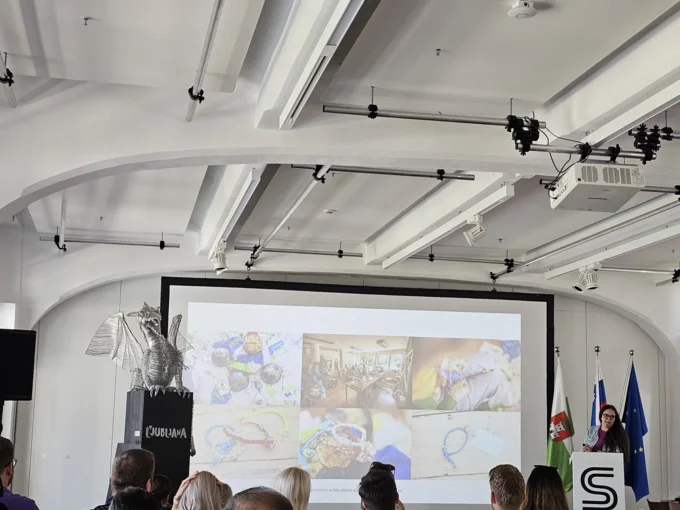
In a similar vein, Sine Midtgaard Hansen from the City Administration of Copenhagen shared an exemplary model of sustainable management for hosting major sporting events. This host city model, developed by the city administration, is based on shared ownership and partnership among all stakeholders involved in organizing the event and shared planning between public authorities and private rights holders. It aligns with the UN Sustainable Development Goals (SDGs) and supports the Copenhagen 2025 Climate Plan, which is a long-term strategy aimed at mitigating climate change, improving quality of life, and reducing CO2 emissions by addressing the issues of energy production and consumption, and mobility. The ultimate goal of this plan is to achieve the climate neutrality of the danish capital by 2025. Within this policy framework, Copenhagen’s host city model demonstrates the city administration’s ambition to be a leading example of responsible event hosting, including for major sporting events.
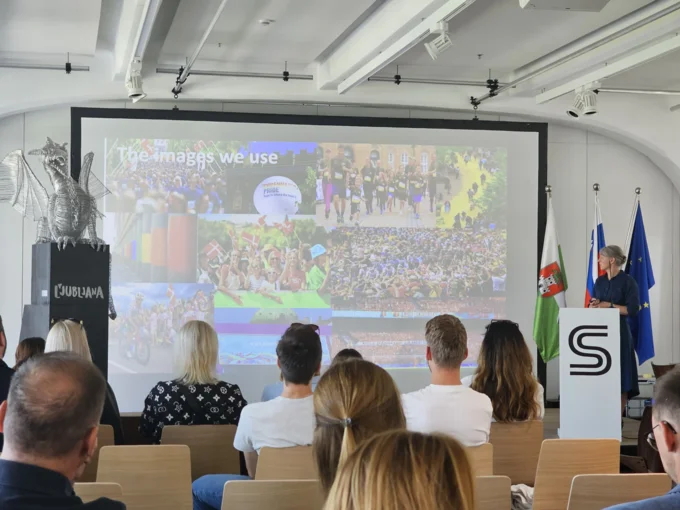
Practical examples of the Copenhagen model's implementation were also showcased. The city used events such as the UEFA Euro 2021 football matches, the start of the 2022 Tour de France, and the 2024 ISA World SUP & Paddleboard Championship as testbeds for sustainable measures to minimize the climate impact of organizing public events. These sporting events also served as opportunities to address the economic and social pillars of sustainability. The city organized side events open to citizens and visitors and involved civil society organizations to engage and raise awareness. These initiatives promoted social inclusion through the use of sport, demonstrating Copenhagen's holistic approach to sustainability.
Copenhagen’s experience offers a positive example of using major sports events as a testbed for sustainable event solutions and best practices. "However - noted Ms. M. Hansen - in my experience, this process should follow a case-by-case approach, tailored to the type of sport event hosted and the specific needs of the city community involved. Every city should find its own way to reduce carbon emissions at sport events, as there is no one-size-fits-all solution." When asked about the time required to organize major sports events sustainably, Ms. M. Hansen replied, "It takes longer than usual, typically requiring 18 to 24 months of advance planning. Early and thorough planning is a crucial aspect of our strategy in Copenhagen. The most challenging part is negotiating with international rights holders to adapt their practices and implement sustainable measures to minimize the events' environmental impact on the city."
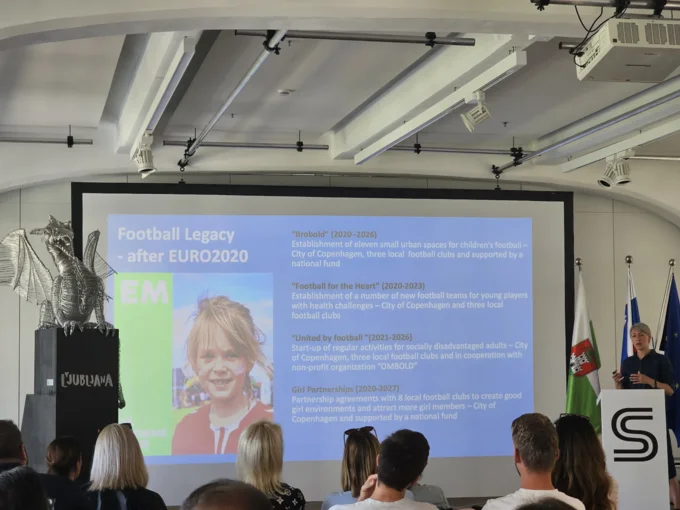
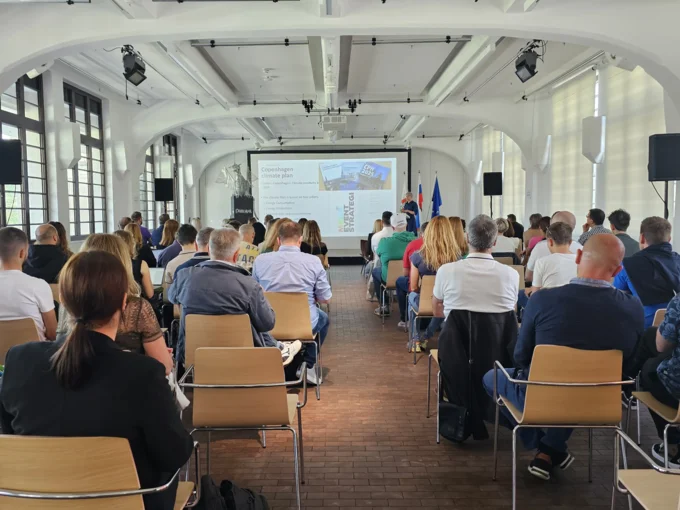
The panel session also featured Tijana Popadić from SportIT, who discussed experience of the Serbia Business Run, the largest corporate event in Serbia, which connects employees from various companies through a series of running events. Schneider Electric, recently recognized as the world’s most sustainable company, revolutionized the event by implementing sustainable measures using their solutions. These measures included solar-powered screens and devices, as well as improved waste and plastic management.
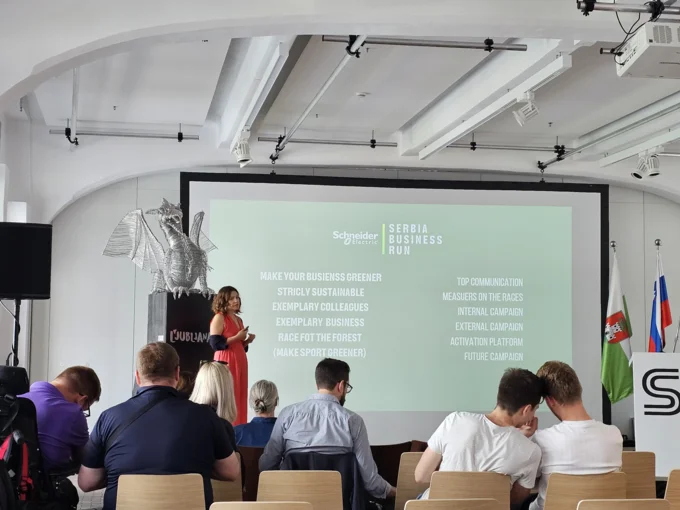
Following on the program, was the presentation by Vincent Van Acker from Kinto, the sustainable mobility branch of Toyota. Kinto collaborates extensively with the sports industry in Italy, serving as the official sponsor and mobility service provider for football teams AS Roma and FC Bologna. Kinto's involvement goes beyond supplying electrified vehicles; it encompasses educating the public on sustainable transportation to stadiums and organizing activities that promote alternative modes of mobility. Additionally, Kinto supports AS Roma’s initiatives for fans with disabilities, providing transportation to the stadium and offering sign language translation for conferences and club anthems.
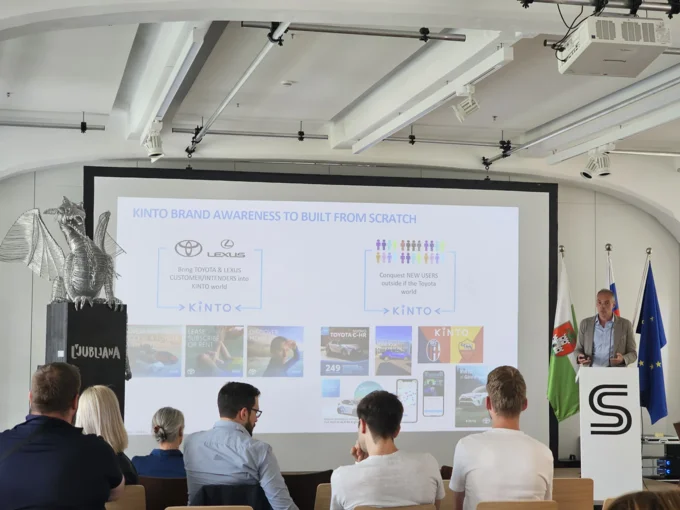
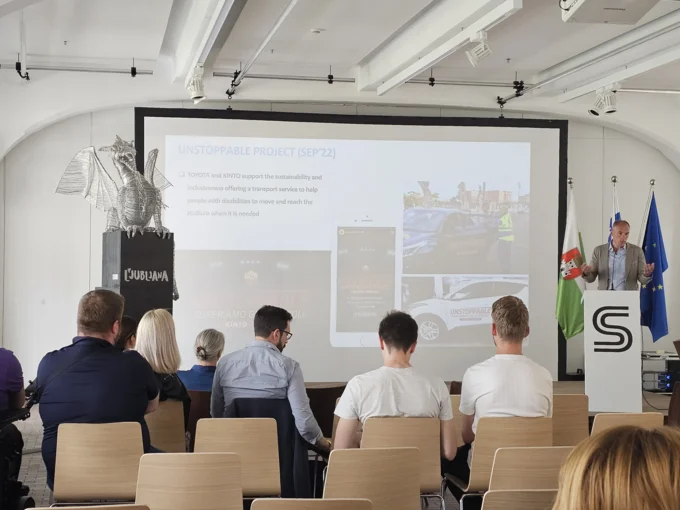
"Our experience shows that brands play a crucial role in creating sustainable sports events, - said Vincent Van Acker - having a major brand with a clear vision and strategy for corporate social responsibility makes a significant difference. Companies need to be credible and possess strong credentials to add value to partnerships in sports events.”
The conference was then concluded with a panel discussion on the topic of "How to change the old habits", including four three guest speakers: Gaja Brecelj, Director of Umanotera organization, Amir Alibabić, representative of the Association for Sport of the Disabled of Slovenia - Slovenian Paralympic Committee and Polona Skrbec, Head of Corporate Social Responsibility Management in Insurance company Triglav.
The guests discussed how to change old habits, what has changes over the years in terms of sustainable sport events in Slovenia, what are the most important steps towards a more sustainable sport events, inclusivity and shared many examples of best practices used by their own organisations and implemented through their careers.
For more information regarding the conference and other events of Road to SPORTO 2024, please see
https://sporto.si/
